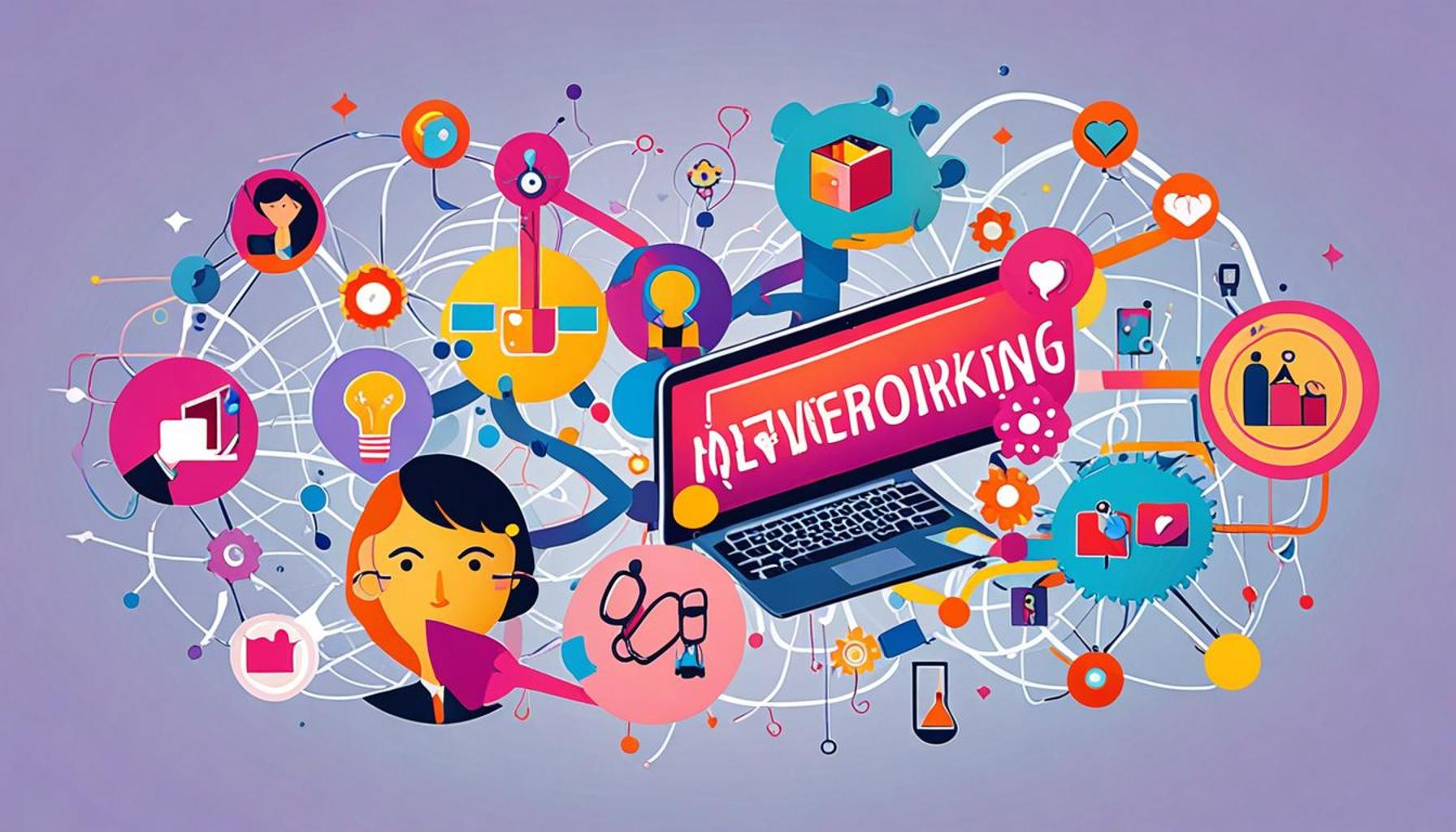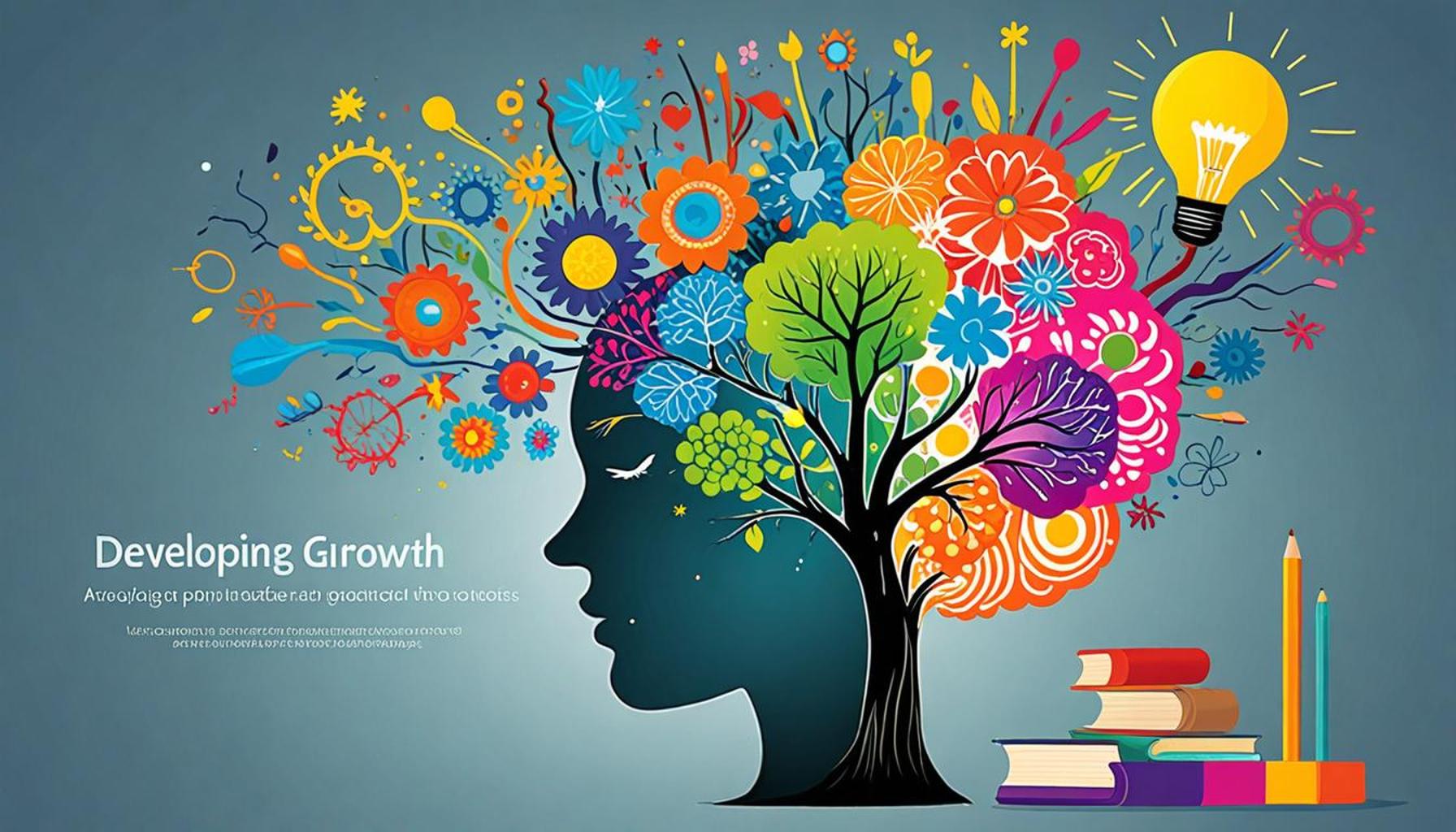Reflective Practice in Developing Interpersonal Skills and Professional Networking

The Importance of Interpersonal Skills
In the professional landscape, interpersonal skills have emerged as a cornerstone of effective collaboration and success. These skills encompass a range of abilities, including communication, empathy, and conflict resolution. Professionals with strong interpersonal skills can navigate the complexities of workplace dynamics, enhancing both their career trajectory and the environment around them. For instance, an employee who excels in communication can articulate ideas clearly, listen actively, and engage in constructive feedback, thus fostering a collaborative atmosphere.
Professional Networking as a Gateway
Effective professional networking is not merely about exchanging business cards or connecting on social media; it is about building relationships that can lead to career advancement and new opportunities. In Nigeria, where personal connections often play a pivotal role in recruitment and business development, mastering the art of networking can have profound implications. Networking events, trade fairs, and local industries require individuals to engage meaningfully with others, utilizing their interpersonal skills to create lasting impressions.
The Role of Reflective Practice
Reflective practice serves as a powerful tool for enhancing interpersonal skills and professional networking. It involves a deliberate and structured approach to evaluating one’s experiences to gain insights and foster growth. Through this reflective lens, professionals can:
- Self-Assessment: Individuals can frequently evaluate their interactions, analyzing their strengths and weaknesses. For example, a marketing professional may reflect on a recent pitch meeting to identify how their body language and tone influenced audience engagement.
- Feedback Utilization: Constructive feedback from colleagues or mentors provides valuable perspectives that can help refine approach. In Nigerian workplace settings, open feedback loops are crucial, especially within cooperative societies where collaboration is essential for projects.
- Continuous Learning: Attending workshops and professional training sessions that emphasize networking skills can transform how individuals present themselves. Such programs not only offer knowledge but also provide opportunities to practice networking in real-time.
Navigating Networking in Nigeria
In Nigeria, where community plays a vital role in business and employment, proficiency in networking can significantly alter an individual’s career path. Events such as the Nigerian Economic Summit and local entrepreneur meet-ups highlight the importance of engaging with potential collaborators and mentors. Reflective practice facilitates a deeper understanding of these networking opportunities, allowing professionals to approach them with confidence and strategic intent.
The vibrant culture of marketplaces in Nigeria illustrates the essence of relationships in professional networking, as deals are often sealed through trust and personal rapport. By continuously reflecting on and enhancing interpersonal skills, professionals can navigate these sociocultural landscapes more effectively to build and nurture their networks.

Conclusion
The interplay between reflective practice, interpersonal skills, and professional networking is crucial for personal and career development. For individuals aspiring to excel in Nigeria’s dynamic job market, committing to this reflective journey can yield significant long-term benefits. Ultimately, fostering and honing these skills empowers individuals to seize opportunities, enhance collaboration, and build enriching professional relationships essential for success.
ADDITIONAL INSIGHTS: Expand your understanding here
Enhancing Interpersonal Skills through Reflective Practice
The integration of reflective practice into daily professional life is crucial for anyone looking to enhance their interpersonal skills. This process involves a systematic examination of one’s interactions, allowing individuals to learn from their experiences and implement changes that foster better relationships. The practice of reflecting on social interactions can illuminate patterns in behavior, revealing insights that may not be immediately apparent. This is especially relevant in Nigeria, where diverse cultures and perspectives coexist within the professional landscape.
For instance, a professional engaging with colleagues from various ethnic backgrounds can reflect on their interactions to better understand different communication styles and cultural nuances. This self-awareness not only improves interpersonal relations but also bolsters the ability to navigate complex workplace dynamics. Individuals who practice this reflection regularly can align their communication styles with the preferences of those around them, thereby enhancing team cohesion and effectiveness.
Practical Steps for Reflective Practice
Implementing reflective practice requires a structured approach. Here are some practical steps that can help individuals enhance their interpersonal skills through reflection:
- Journaling Experiences: Keeping a journal to document daily interactions can provide a repository of experiences to reflect upon. Writing about what went well and what could be improved offers a clearer perspective over time.
- Engaging in Peer Discussions: Regularly discussing challenges and successes with colleagues can yield diverse viewpoints and enrich the learning process. Such conversations can lead to new techniques for managing conflicts or enhancing collaboration.
- Setting Reflection Goals: Establishing specific goals for reflection, such as enhancing listening skills or becoming more empathetic, can create focused pathways for growth. By aligning these goals with broader career aspirations, professionals can stay motivated and accountable.
Incorporating these reflective practices into everyday routine can significantly impact the way professionals conduct themselves in interpersonal interactions, particularly in networking situations. Engaging in networking events with a reflective mindset not only prepares individuals to present their best selves but also opens doors to discovering authentic connections.
Leveraging Reflective Insights in Networking
The art of networking is an extension of interpersonal skills, necessitating a refined approach to relationship-building. Reflective practice creates a solid foundation for effective networking by equipping individuals with the awareness needed to engage genuinely and meaningfully. As professionals in Nigeria strive to leverage networking opportunities, understanding the dynamics at play can differentiate between a superficial acquaintance and a valuable connection.
For example, a business owner may reflect on past networking experiences and recognize that they often struggle to follow up after an event. Through this reflection, they can develop a strategy to maintain connections, such as scheduling coffee meet-ups or sending appreciation messages, which can strengthen bonds and pave the way for collaborative projects.
Ultimately, by engaging in consistent reflective practice, professionals in Nigeria can enhance their interpersonal skills and make the most of their networking opportunities, transforming how they interact within their professional communities.
Exploring the Impact of Reflective Practice
Reflective practice is pivotal for enhancing interpersonal skills and professional networking. It involves a conscious effort to evaluate and understand one’s experiences, leading to personal and professional growth. Engaging in reflective practices allows individuals to identify their strengths and weaknesses in communication, fostering improved relationships within a professional setting. By incorporating techniques such as journaling or mindfulness, individuals can gain insights into their interactions, enabling them to make informed adjustments in their behavior. This approach not only enhances personal interaction but also contributes to a stronger professional network. As connections deepen, opportunities for collaboration and professional advancement become more prevalent. Additionally, effective reflective practice encourages feedback from peers, which is instrumental in honing one’s networking abilities. Constructive criticism and supportive dialogue empower individuals to refine their skills and expand their professional circles. In an age where personal branding and networking are crucial, reflective practice serves as a powerful tool for navigating complex social dynamics in the workplace.To better understand the advantages of reflective practice within this realm, consider the following table:
| Advantage | Description |
|---|---|
| Enhanced Communication Skills | Reflective practices help individuals better understand their communication style, leading to more effective interactions. |
| Stronger Professional Connections | By developing interpersonal skills, professionals can forge meaningful relationships that facilitate networking opportunities. |
By examining these advantages, it becomes evident that reflective practice is not just a theoretical exercise; it is a practical approach to enhancing interpersonal skills and fostering effective professional networking. The continuous cycle of reflection and improvement offers a pathway to success in both personal and professional landscapes.
YOU MAY ALSO LIKE: Read read another article
Identifying Barriers to Effective Networking
While reflective practice enhances interpersonal skills and cultivates meaningful connections, it is equally vital to identify and address barriers that may hinder effective networking. In Nigeria’s diverse professional landscape, cultural expectations and communication barriers can impede relationship-building efforts, resulting in missed opportunities for collaboration and support.
One common barrier is cultural misinterpretation. For example, in some Nigerian cultures, directly addressing conflicts may be viewed as confrontational, leading individuals to avoid crucial conversations. Through reflective practice, professionals can recognize their own cultural biases and adapt their communication style accordingly. This adjustment not only demonstrates sensitivity to others’ values but also creates a more inclusive environment for networking.
Another significant barrier is the issue of confidence. Many individuals grapple with self-doubt, feeling inadequate when initiating conversations or presenting themselves in professional settings. To overcome this, professionals can reflect on past successes and positive feedback to reinforce their value, ultimately building greater confidence in their networking interactions. For instance, a professional who excels in problem-solving can highlight this strength when engaging with potential partners, allowing them to approach networking with a newfound assurance.
Utilizing Feedback as a Reflective Tool
Feedback is an invaluable aspect of reflective practice that can propel interpersonal skill development. Active solicitation of feedback from peers, mentors, and even clients can provide unique insights into one’s communication style and relationship-building techniques. By embracing a growth mindset and viewing feedback as an opportunity for improvement, professionals can identify specific areas to target for enhancement.
For example, after a networking event, a marketing manager could ask colleagues for their impressions of their interactions. By understanding how others perceive their communication approach, the manager can adapt their strategies in future engagements. This iterative process not only leads to improved interpersonal skills but also fosters an environment where colleagues feel valued for their opinions, enhancing overall team dynamics.
Strategic Application of Reflective Insights
Once barriers are identified and feedback is integrated, it’s crucial to apply reflective insights strategically in networking scenarios. Professionals should consider creating a personalized networking plan that incorporates the reflections gathered through previous experiences. This plan could include prepared elevator pitches, targeted industries for outreach, and specific individuals they wish to connect with based on mutual interests or shared goals.
Additionally, utilizing digital platforms like LinkedIn provides an opportunity to reflect on virtual networking strategies. By analyzing connections made through social media, individuals can tailor their online presence to align with their reflective insights, ensuring that they effectively convey their professional narrative. Engaging regularly on social platforms can further enhance visibility and accessibility, leading to richer networking possibilities.
Building a Reflective Networking Habit
Establishing a consistent habit of reflective networking can serve as an ongoing mechanism for professional development. Integrating reflection into pre- and post-networking activities encourages individuals to assess their approach continuously, making adjustments as needed. For instance, before attending a conference, professionals can reflect on their networking goals, prepare key questions to ask, and identify common interests with attendees.
Following the event, conducting a thorough assessment of the connections made and potential follow-up steps can solidify the learning experience. This habit of reflection not only facilitates personal growth but also lays the groundwork for stronger and more resilient professional relationships, embodying the essence of effective networking in Nigeria’s multifaceted environment.
CHECK OUT: Click here to explore more
Conclusion
Reflective practice stands as a pivotal tool in the journey towards strengthening interpersonal skills and enhancing professional networking capabilities. By continuously engaging in reflection, individuals can uncover and address cultural misunderstandings and personal barriers that may obstruct their networking effectiveness. Such insights enable professionals to embrace adaptive communication styles that value cultural nuances and foster inclusivity in their interactions.
Moreover, actively seeking and integrating feedback plays a crucial role in this developmental process, enabling professionals to refine their approach and better understand how their communication is perceived. This creates a dynamic feedback loop that not only assists in personal growth but also enriches team dynamics, nurturing a collaborative and supportive environment.
The strategic application of reflective insights can transform networking from a daunting task into a structured and planned endeavor. Crafting a tailored networking strategy, complemented by consistent engagement on platforms like LinkedIn, allows individuals in Nigeria’s diverse business landscape to establish meaningful connections that align with their professional aspirations.
Ultimately, cultivating a reflective networking habit is a commitment to continuous learning and growth. This practice not only equips professionals with the tools needed to navigate the complexities of interpersonal relationships but also opens doors to new opportunities for collaboration and success in their careers. By embracing reflective practice, individuals can transform their networking experiences into powerful avenues for professional advancement, paving the way for a more interconnected professional community.


